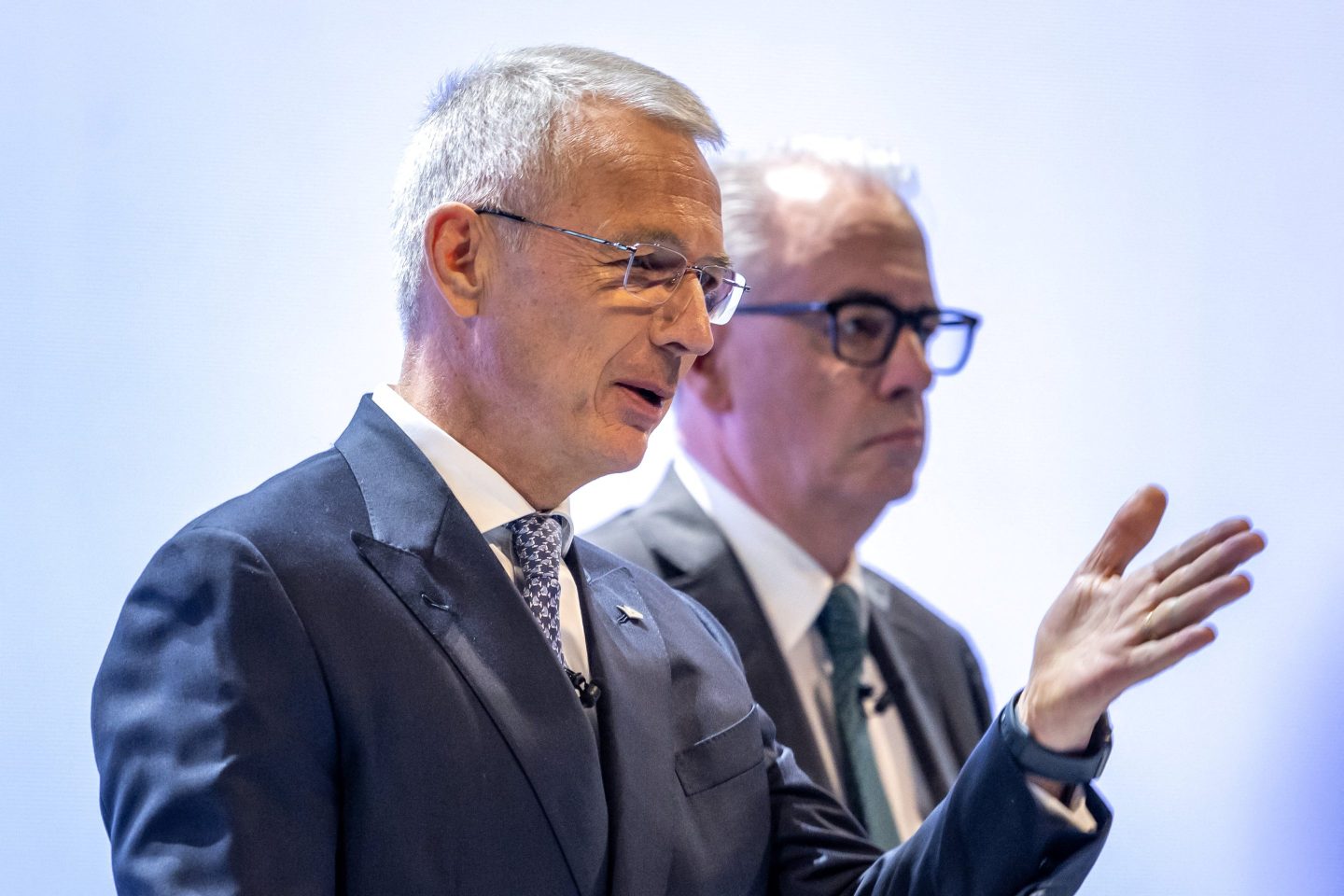Good morning,
Peter Vanham here in Geneva, filling in for Alan.
Seen from the German-speaking world, it’s hard to be upbeat about the state of the world of finance these days. (I’ll leave the analysis of the state of U.S. democracy and justice to those of you focused on lower Manhattan.)
In Zurich, yesterday, shareholders of Credit Suisse gave the company’s outgoing board an angry wave-off, at the bank’s last ever annual meeting. I dialed in from Geneva, and heard that pretty much everything and everyone was blamed for the bank’s demise: greed of bankers, mismanagement of leadership, a lack of oversight by the board, overreach by government, even the long arm of Uncle Sam. But no sentiment was more palpable than a general distaste of bankers and their ethics.
Meanwhile, in Berlin, Germany’s accounting watchdog APAS banned Big Four accounting firm EY from signing any new listed clients in the next two years. The tap on the wrist followed EY’s involvement in the Wirecard fraud case, as EY was the fintech’s auditor before nearly €2 billion went missing. The verdict constituted the APAS’ “most extensive procedure to date”, Zeit reported, and “has a big impact,” Rene Bender, a Handelsblatt investigative journalist who followed the story for 3 years, told me. EY had already been losing clients and shedding employees in Germany, and now sees any recovery paused by another two years.
There is no easy way for the financial and auditing world overcome such setbacks, because of the deep mistrust created among the public at large. But the current situation reminds me a bit of when I started as a consultant at Bain & Company after the 2007-2008 financial crisis, and that oddly enough gives me some hope for the future. In addition to the financial crisis, the consulting world at the time was shook by its own scandal: the Gupta-Kumar-Rajaratnam insider trading scandal, involving McKinsey’s former global managing director, Rajat Gupta and a senior partner, Anil Kumar.
Kumar collaborated with justice, and Gupta was convicted to two years in prison. But what mattered more to us, junior consultants, was how our industry dealt with it. The case was part of our ethics training at the time, and we were taught to incorporate the moral of the story: to never do something you wouldn’t want to see published on the front page of the newspaper.
Banks and auditing firms now have an opportunity to treat the Credit Suisse and Wirecard/EY cases as similar cautionary tales. That may not root out all (real or perceived) greed, mismanagement, and lack of oversight. But it does open the opportunity for companies to win back trust from their stakeholders, relying on a new generation of employees freshly infused with a moral compass.
More news below.
Peter Vanham
@petervanham
peter.vanham@fortune.com
TOP NEWS
Reapply or bust
Tim Cook is implementing cost-cutting measures, including job cuts in its development and preservation teams, which oversee the maintenance and construction of Apple stores. Employees in these departments are being asked to reapply for similar roles, with those who do not reapply facing potential layoffs and severance pay of up to four months. This move follows Cook's efforts to minimize expenses elsewhere and maintain a tight focus on growth opportunities, as Apple navigates slowing demand and economic challenges. Fortune
Exxon bets on low carbon
A high-ranking executive at ExxonMobil has suggested that the company's emerging low-carbon businesses, which encompass biofuels, hydrogen, and carbon capture, may surpass its traditional fossil fuel production in terms of profitability in the future. To support this vision, the company has outlined plans to invest approximately $17 billion in its low-carbon ventures by the end of 2027, with the aim of generating substantial revenue that could potentially outstrip its oil and gas business. Financial Times
The future of the board
Boards of directors’ challenges have intensified in recent years, with increased shareholder activism, regulatory demands, and pandemic-related changes. Board members are adapting by communicating more frequently and making better use of their time together, focusing on strategic discussions rather than fact-finding. Fortune
AROUND THE WATERCOOLER
Morgan Stanley analysts are forecasting something ‘worse than in the Great Financial Crisis’ for commercial real estate by Alena Botros
The world’s richest man just got richer. LVMH boss Bernard Arnault’s wealth has topped $200 billion for the first time by Chloe Taylor
For ChatGPT creator OpenAI, Italy’s ban may just be the start of trouble in Europe by Jeremy Kahn
Why the biggest players in crypto are worried about Adrienne Harris by Leo Schwartz
This edition of CEO Daily was edited by Jackson Fordyce.
This is the web version of CEO Daily, a newsletter of must-read insights from Fortune CEO Alan Murray. Sign up to get it delivered free to your inbox.












